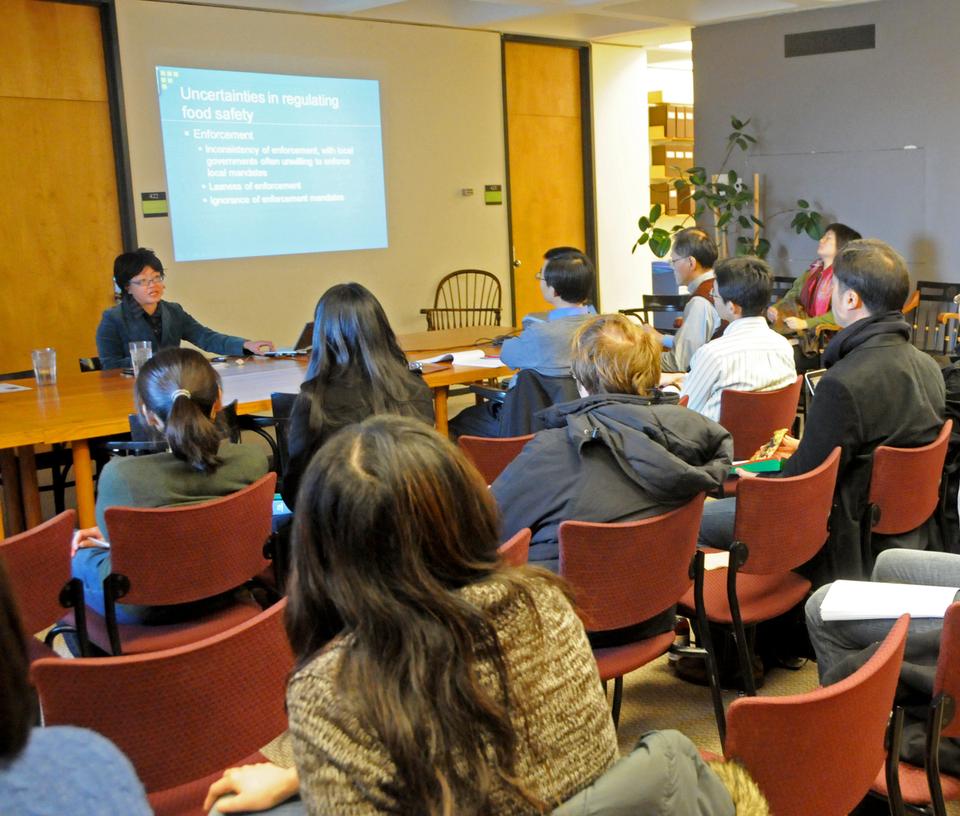
News
Summers Will Not Finish Semester of Teaching as Harvard Investigates Epstein Ties

News
Harvard College Students Report Favoring Divestment from Israel in HUA Survey

News
‘He Should Resign’: Harvard Undergrads Take Hard Line Against Summers Over Epstein Scandal

News
Harvard To Launch New Investigation Into Epstein’s Ties to Summers, Other University Affiliates

News
Harvard Students To Vote on Divestment From Israel in Inaugural HUA Election Survey
China Improves Food Safety
To improve its food safety reputation, China is making regulations stricter

Despite a reputation for poor quality control in its exports, China has made strides in improving food safety regulations in recent years, argued University of Wisconsin Law School Professor Stephanie Tai yesterday.
New research grants and punitive measures, as well as increased clarity on existing legislation, have helped efforts to contain and prevent food contamination in China in the past year, said Tai in her lecture.
Recent efforts to improve food safety are motivated by a desire to improve the “Made in China” brand, which has been damaged by numerous incidents in past years. Tai cited the US Food and Drug Administration’s decision to detain farm-raised seafood from China in 2007 and Japan’s discovery of insecticide contamination in dumplings shipped from China in 2008 as examples of China’s poor track record in food safety.
Tai added that a growing domestic movement in China demanding safer products, such as organic food, has also played a part in encouraging food safety reform.
Despite the improvements, Tai said China still has more to do before its food safety problems are solved.
Current challenges hindering further improvements in China include public apathy, a lack of public education and awareness, and the limited power of non-governmental organizations in the Chinese political system, she said.
In an interview with The Crimson after the event, Tai took spoke optimistically about the potential for improvements and reform in the quality of Chinese food exports.
Tai said that the foundation for improved food safety regulations are now in place, and that China will over time fill in the gaps with subsequent legislation.
“Food is such a visceral topic that the people and the government of China have likely driven the change,” she said.
Want to keep up with breaking news? Subscribe to our email newsletter.
